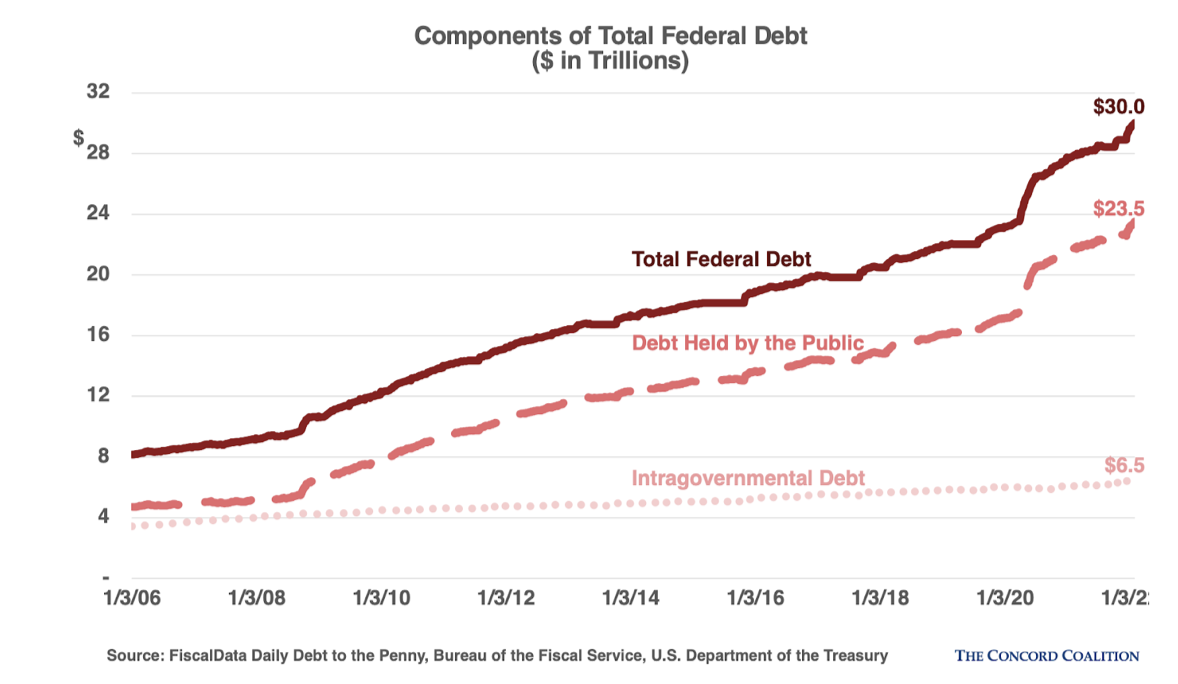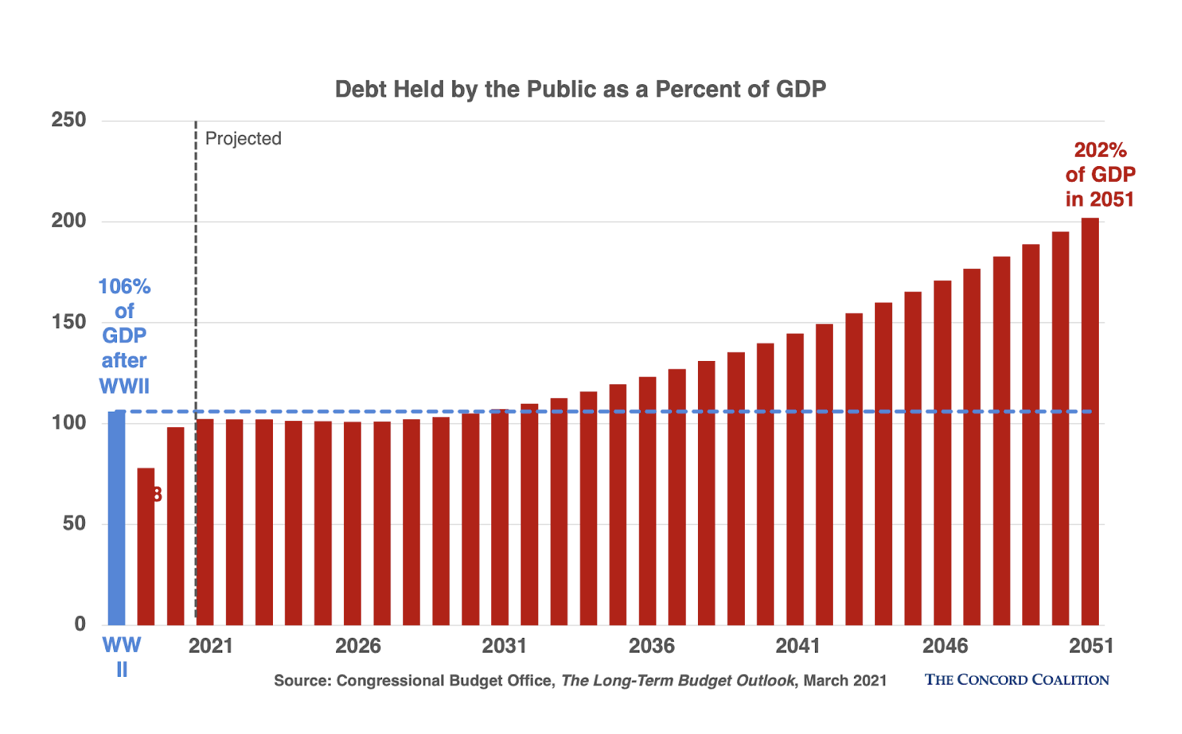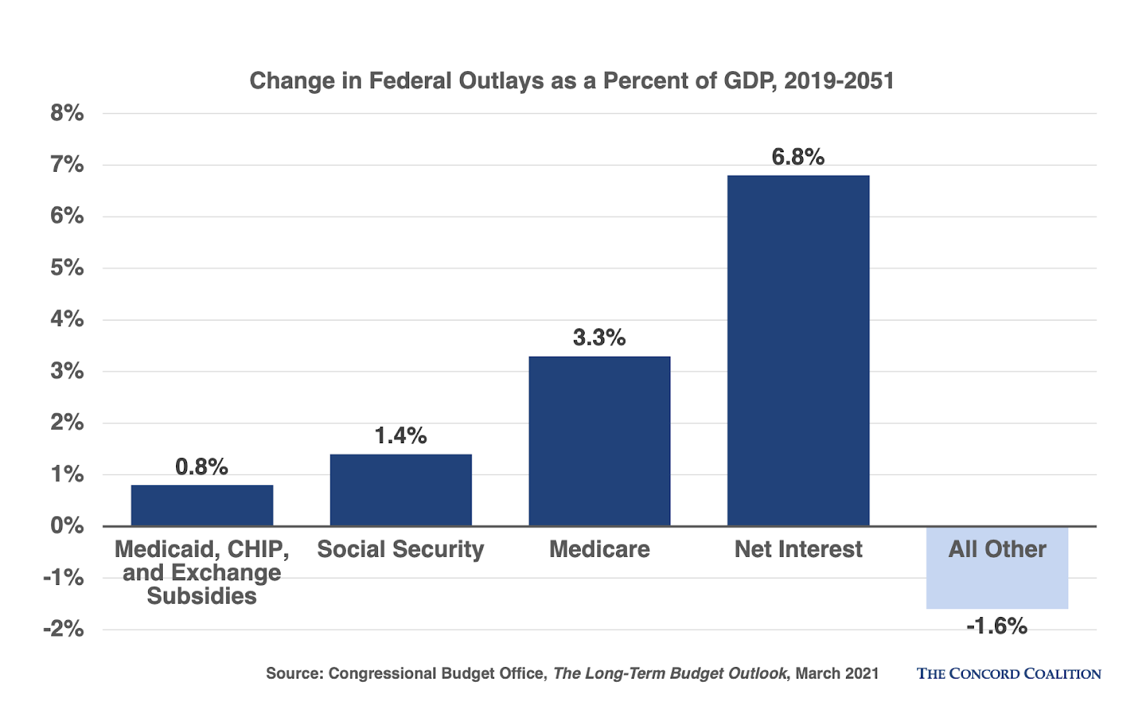If you blinked this week, you probably missed that the total federal debt reached $30 trillion—an historic high. Like aging Americans who bemoan birthdays ending in zero (30, 40, 50, …), this occasion marked the crossing of an important, albeit purely psychological, barrier. There is little difference in a person’s quality of life just because a turn of the calendar page announces a new decade, but the prospect of what lies ahead can trigger a sense of unease and dread—so too is the $30 trillion debt milestone.

Our national debt crisis is no different this week than last: we are still spending beyond our means. And while it’s easy to blame the recent jump in federal indebtedness on COVID, the fear and dread among budget experts is knowing that even after the fiscal effects of the pandemic fade, the large and growing imbalance between revenues and spending that predated the health crisis will remain and push our debt to unsustainable levels.

To be fair, a good chunk of the $30 trillion represents debt the government owes to itself. Intragovernmental debt (e.g., bonds held by the Social Security and Medicare trust funds) account for $6.5 trillion, or 22 percent, of total federal debt, and it can be argued that the non-marketable special obligation Treasury bonds held by those trust funds are a political–not financial–liability. Still, if Social Security or Medicare have no other means of paying full benefits (like now), then the Treasury must liquidate the trust fund bonds on demand and raise the necessary cash, thus exchanging intragovernmental debt for publicly-held debt.
It is the component of total federal debt that is held by the public—the $23.5 trillion in Treasury securities held by pension funds, individuals, institutional investors, and foreign governments which must be repaid—that represents the real danger. Post-COVID, the nonpartisan Congressional Budget Office projects annual federal budget deficits will exceed $1 trillion in perpetuity, pushing debt held by the public above the record set after World War II. What’s driving this phenomenon? Unchecked entitlement growth and spiraling net interest costs.

Oftentimes Americans greet major milestone birthdays with a renewed commitment to get in shape, exercise, and eat healthier. Lawmakers should consider a similar approach to our federal debt and commit to get the budget back in shape. A good first start would be a renewed focus on the bipartisan TRUST Act, introduced by Republican Senator Mitt Romney (UT) and co-sponsored by Democratic Senator Joe Manchin (WV). The bill would establish a bipartisan process for improving the financial health of major federal trust funds that are projected to be depleted within the next 15 years, including the Medicare, Social Security, and Highway Trust Funds.
Lawmakers can no longer avoid the hard truth—they have promised more than our current tax structure can afford. This week’s milestone debt provides an excellent opportunity to initiate a national dialogue on the tough choices that lie ahead.




